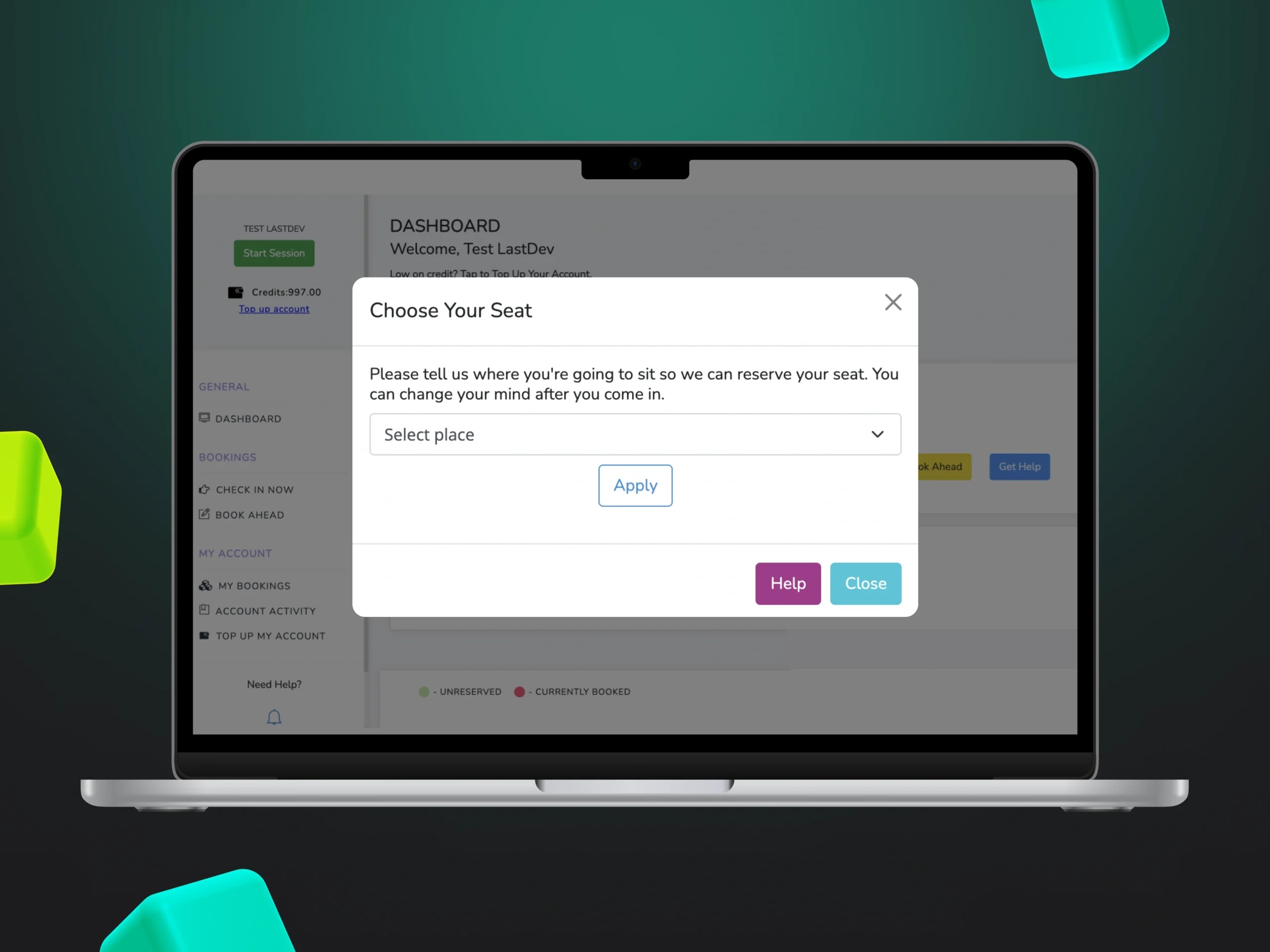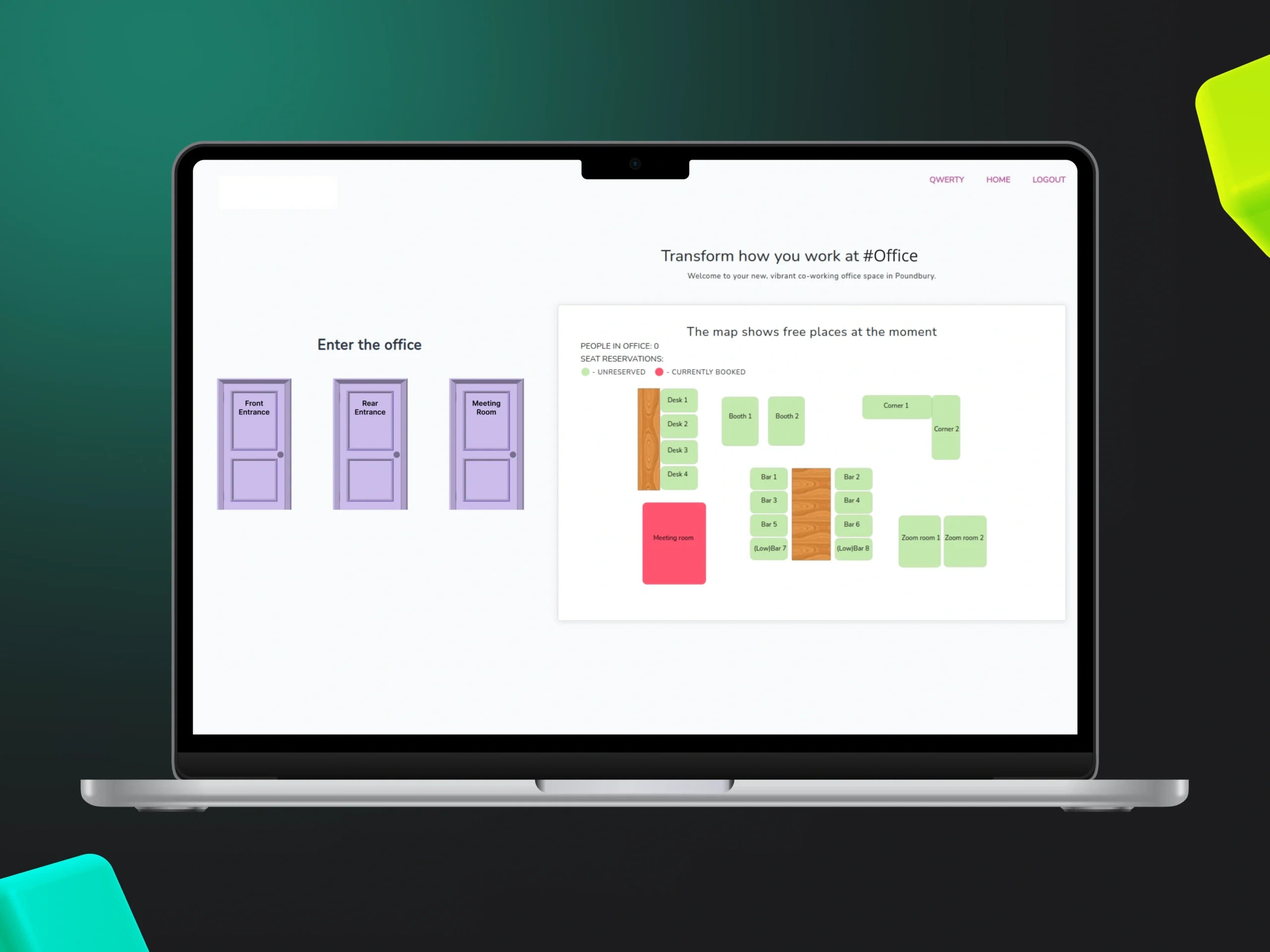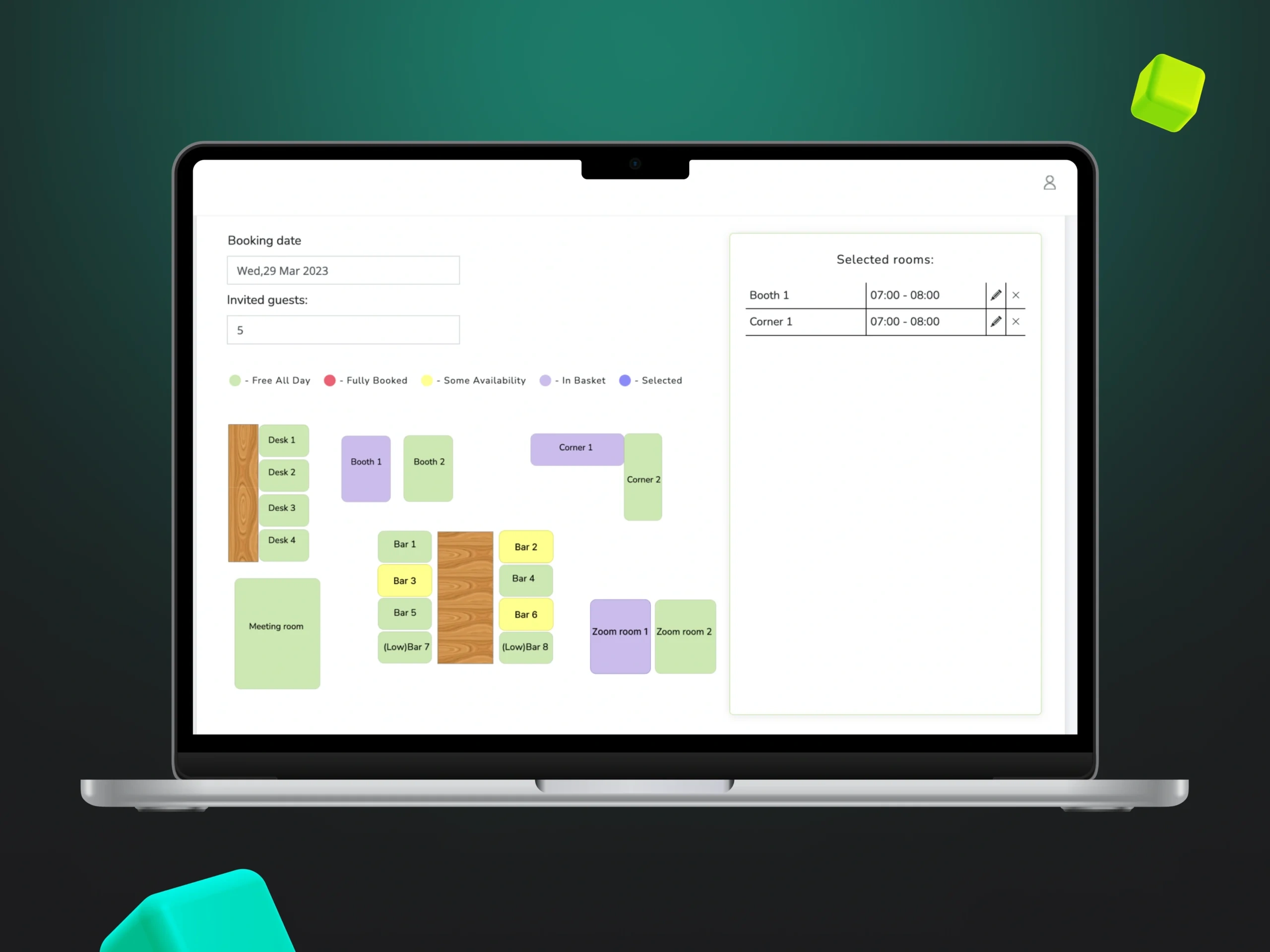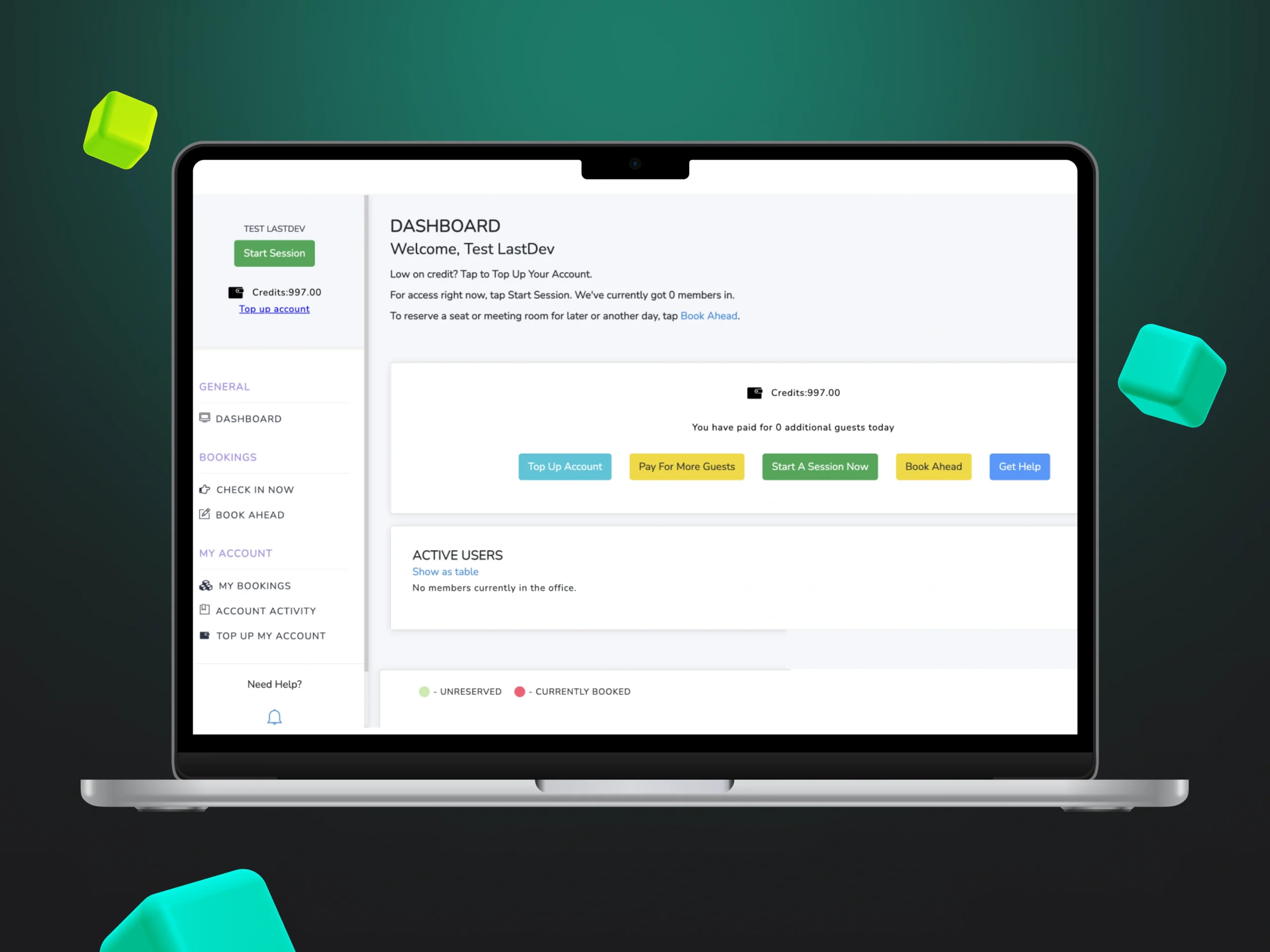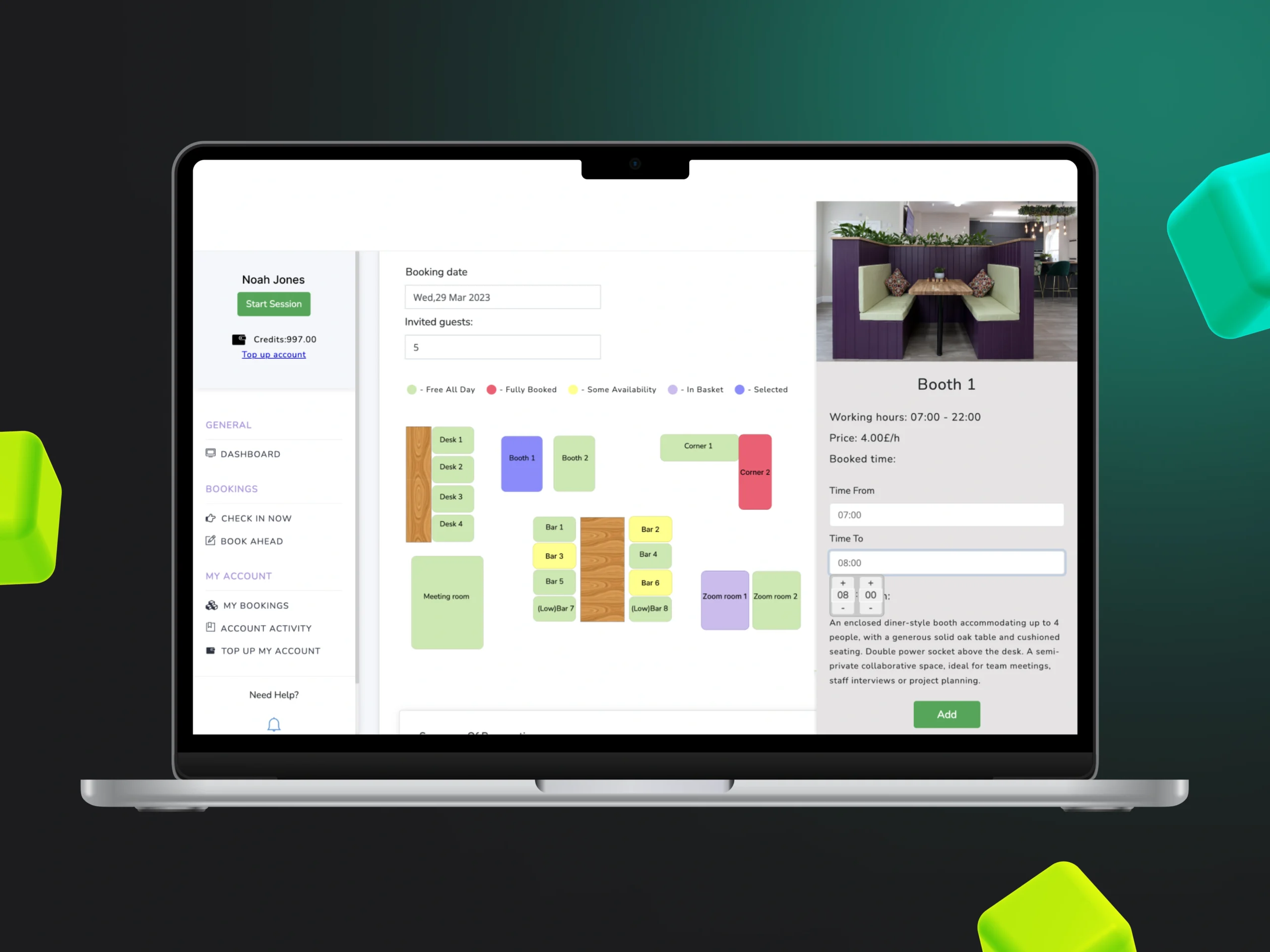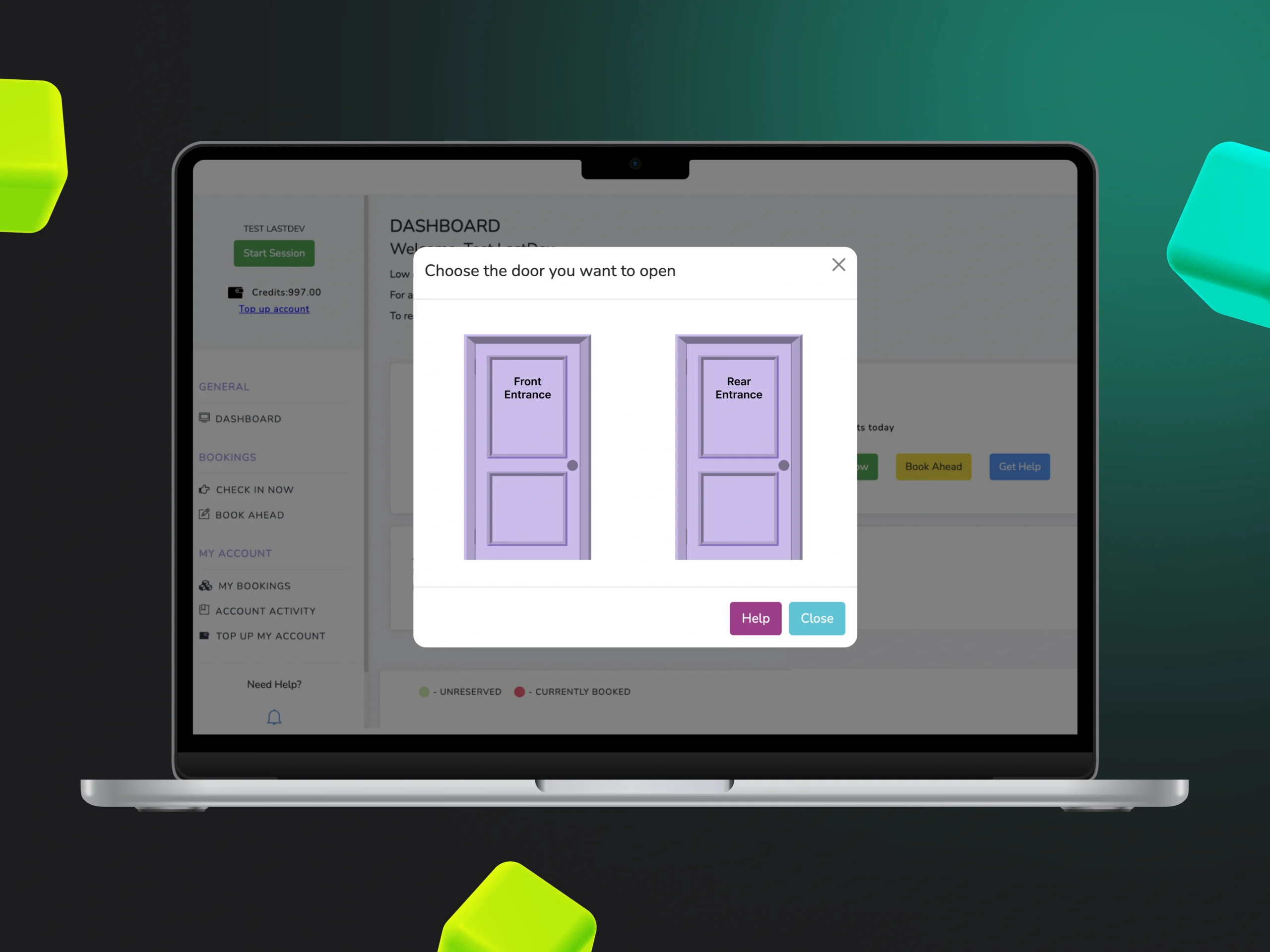Project Background
We received a request for a web application from 2 co-working business owners in May 2021. It is a small space (1000 square feet) catering to freelancers and other flexible workers in the local area who need to hire a desk or meeting room in a professional workspace on an informal, pay-as-you-go basis.
The client’s original idea was to create a native mobile app. But it was later dropped in favor of a web app. So as there was the ability to host it and run it instantly on their own schedule without the need to struggle with app stores.
The banking app was the benchmark user experience for the app, namely an easy registration process and a really clean user interface. The app had to help the client realize their business model, so they wanted it to be able to work in multiple locations from the start, in case they opened another office in the future.
There was only 1 office at the time before development, but the client wanted members to be able to choose which office they book/register for, and also, as an admin, wanted the ability to set access and reservation fees independently for all offices.
Product Description
During the initial phase, we discussed the client’s overall project view, how they would like to implement their idea, etc. We received a general briefing, then we had a sequence of introductory calls to agree the project scope and sprint structure for development. We started work immediately, during the development process we were as transparent as possible, so we regularly reported on the project progress to the client, received their feedback, requests for additional features and bug fixes.
The project’s speed was one of the goals, so during the discussions we decided that the project would take 3 sprint cycles to develop, as a result we got a very comprehensive and viable final product. We acted as technical partners of the project so the finished application was launched by our team on our recommended hosting platform. We carefully corrected any bugs and made any adjustments to the logic of the app throughout the process.
Project Challenges
Our client wanted a fast development of an application, which allows him to fully automate the operation of his business. So we started the project immediately. During the development, we were encountered with the client’s requests such as:
1. a remote workspace reservation system
2. an online map of available seats
3. automation of the venue’s operations
4. in-app payment
Our first challenge was to get the full development to a viable product in a very limited number of iterations. The time limit was 3 months.
According to the client’s idea, freelancers and business owners could book a workspace, see the available seats, independently enter the co-working space and pay for the services in one app.
We started with the system for booking workspace in a workplace. It makes it possible to remotely select a place, time, and duration to be in the co-working space in a few minutes. Concurrently with this, we were also working on dynamic visitor tracking. This means that we have created an online room map so that the user can see which and how many places in the room are free in real time. That allowed the user to choose a convenient place to work independently, while the owner could see the occupancy and has an assistance in customer accounting.
The next challenge was the client’s request to automate the entrance to the area. We had to create digital keys that allowed visitors to enter the space. The idea was to make the business fully automated and staff-free. In order to implement this, we used the API DoorDeck, which was new for us at that time. As a result we could successfully implement this idea. Now every user who has booked and paid for a seat automatically gets access to the entrance door. Users have to log in the app, click on the digital door and then the real door of the place will open.
The last goal was to integrate the payment system. Our client wanted his app to have a flexible payment system. We, as technical partners, offered our expertise and created an e-wallet using Stripe. Now, in order to pay for the services of the workspace, it is necessary to deposit the internal wallet and use it to pay for services. This system of payments and credits gave the client more flexibility in managing the user accounts when it comes to negotiating prices.
Value provided
Finally in a short period of time we created an application for a company that provides services for managing co-working spaces. This platform fulfills the intended purpose. It helps in managing access control to the office space and with the billing system, which fully meets the expectations of the client.
Registration of real participants in the application began shortly after the launch of the product without any complications. First feedback was not long in coming. What is most interesting, in Google Maps in the reviews of the coworking itself, people often write positive comments about the application and its convenience.
Process of work
We used Scrum with its sprint development and fast delivery of increments.
After analyzing the subject area, discovering and planning the project, we proceeded to development iterations. We divided the work into 3 sprint cycles, formulating tasks to be completed in the format of user stories with an emphasis on the client’s request.
Client feedback
Check out what our client shared as his feedback: https://clutch.co/profile/corpsoftio#review-1798668
